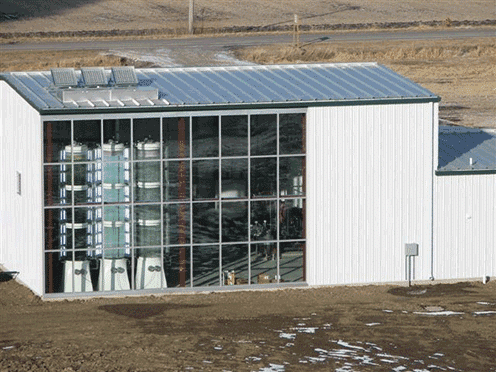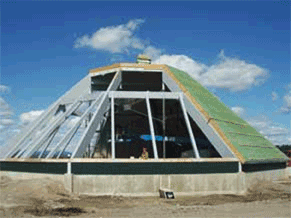Discover how algae farms are revolutionizing the way we produce food and energy, learn more about their potential to reduce emissions and pollution, and explore the possibilities they present.
Blog Introduction: You may have seen algae farms without even realizing it. These large, green facilities are popping up all over the world as we become more and more interested in using this unique plant to create sustainable energy sources. But what exactly are algae farms and how do they work? Keep reading to find out.
Algae farms are facilities that are specifically designed to cultivate algae. Algae is a type of plant that grows in water and produces energy through photosynthesis. There are many different types of algae, but the kind that is used for energy production is called microalgae. Microalgae can be used to create biodiesel, bioethanol, and biogas.
Biodiesel is a type of fuel that can be used in place of traditional diesel. It is made by combining microalgae with an organic compound called lipids. Bioethanol is another type of fuel that can be used in place of gasoline. It is made by combining microalgae with yeast. Biogas is a type of gas that can be used for heating or to generate electricity. It is made by combining microalgae with anaerobic bacteria.
There are many benefits to using microalgae to create sustainable energy sources. First, microalgae grows very quickly and does not require fresh water or land to grow. This means that it does not compete with other crops for resources. Second, microalgae can be grown in salt water, which means that it can be grown in areas where fresh water is scarce. Third, microalgae absorbs carbon dioxide from the atmosphere and produces oxygen through photosynthesis. This makes it a great tool for mitigating climate change.
Benefits of an Algae farm
1
Algae Farms Could Help to Combat Climate Change
One of the potential benefits of algae farms is that they could help to combat climate change. Climate change is caused by the release of greenhouse gases, such as carbon dioxide, into the atmosphere.
These gases trap heat and cause the Earth's temperature to rise. Algae are able to absorb large amounts of carbon dioxide, which could help to reduce the amount of greenhouse gases in the atmosphere and combat climate change.
2
Algae Farms Could Help to Improve Water Quality
Another potential benefit of algae farms is that they could help to improve water quality. Algae are able to absorb nutrients, such as nitrogen and phosphorus, from water.
These nutrients can cause harmful algal blooms, which can deplete oxygen levels and lead to fish kills. By absorbing these nutrients, algae farms could help to improve water quality and prevent harmful algal blooms.
3
Algae Farms Could Help to Generate Renewable Energy
Algae farms could also help to generate renewable energy. Algae can be used to produce biodiesel, a type of fuel that can be used in place of traditional diesel fuel.
Biodiesel is made by extracting oil from algae and then converting it into a usable fuel. Biodiesel has a number of advantages over traditional diesel fuel, including being renewable and emitting less pollution.
4
Algae Farms Could Create New Jobs
Another potential benefit of algae farms is that they could create new jobs. The algae farming industry is still in its infancy, which means there is a great deal of opportunity for growth. This growth could lead to the creation of new jobs in the farming, harvesting, and processing of algae.
5
There Are Some Potential Risks Associated with Algae Farms
While there are many potential benefits of algae farms, there are also some potential risks that should be considered.
One risk is that algae farms could lead to an increase in algal blooms if they are not managed properly.
Another risk is that the use of chemicals or other treatments on algae farms could potentially contaminate nearby water sources
Conclusion:
Algae farms are an important part of the effort to create sustainable energy sources. By growing microalgae, we can create biodiesel, bioethanol, and biogas—all of which have a lower environmental impact than traditional fossil fuels.
What's more, microalgae grows quickly and does not require fresh water or land to grow, making it a very efficient crop. If you're interested in doing your part to fight climate change, look for products that contain algae-based ingredients the next time you're at the store.





